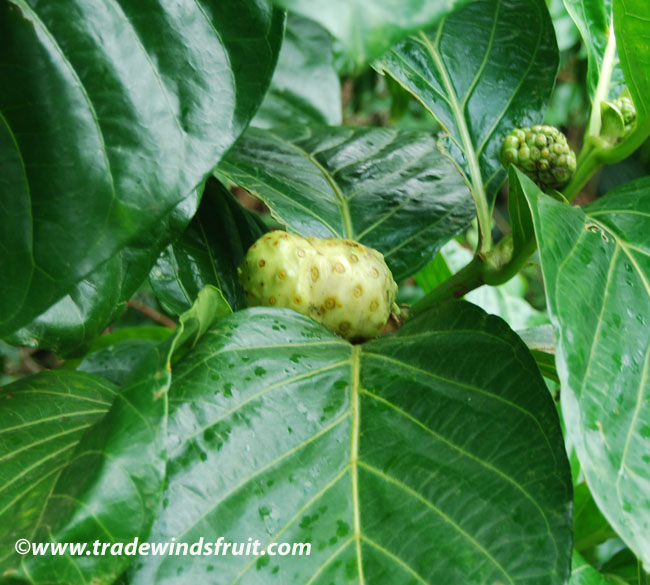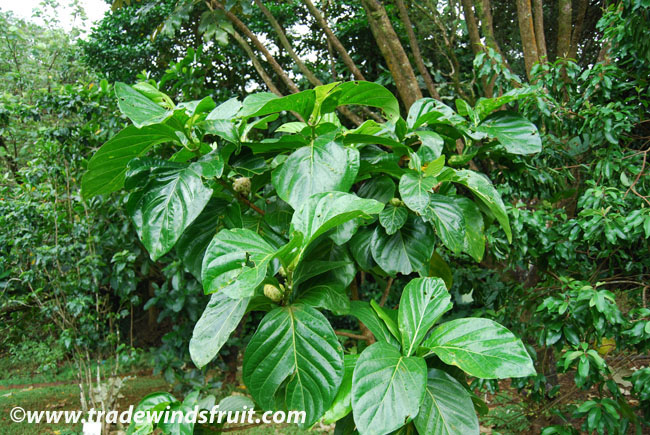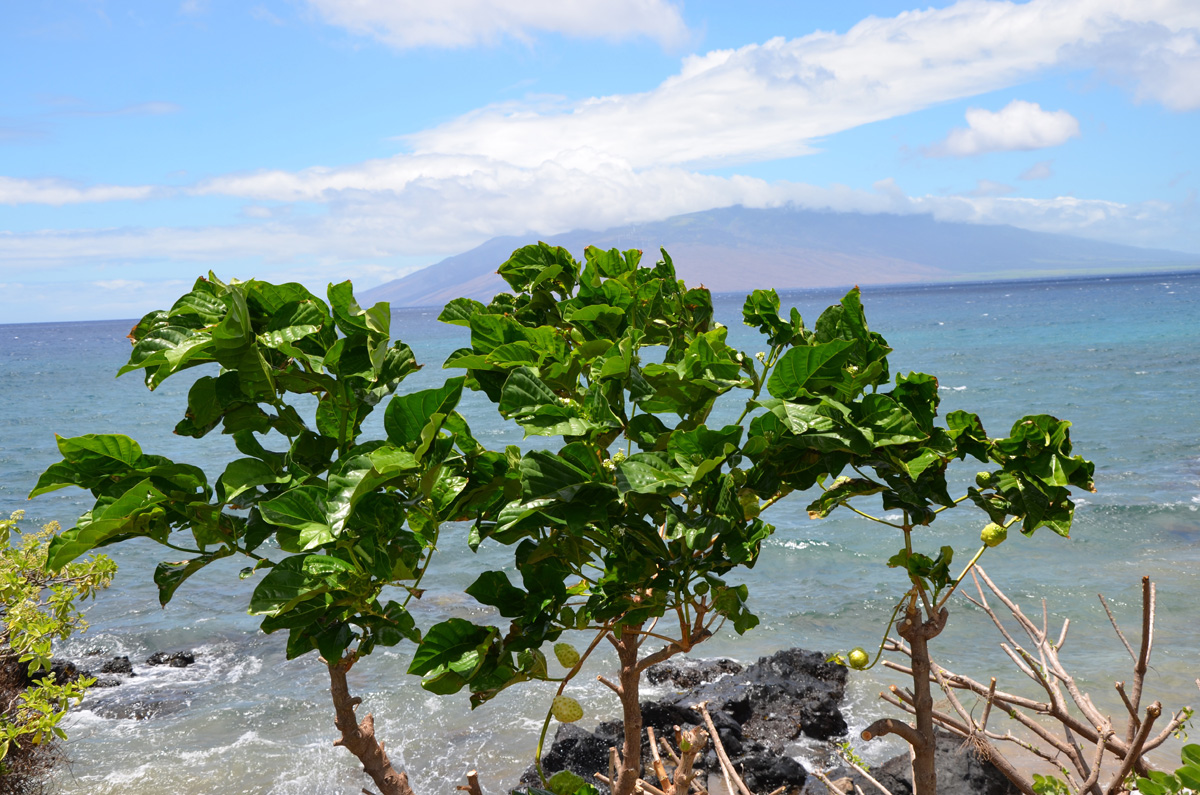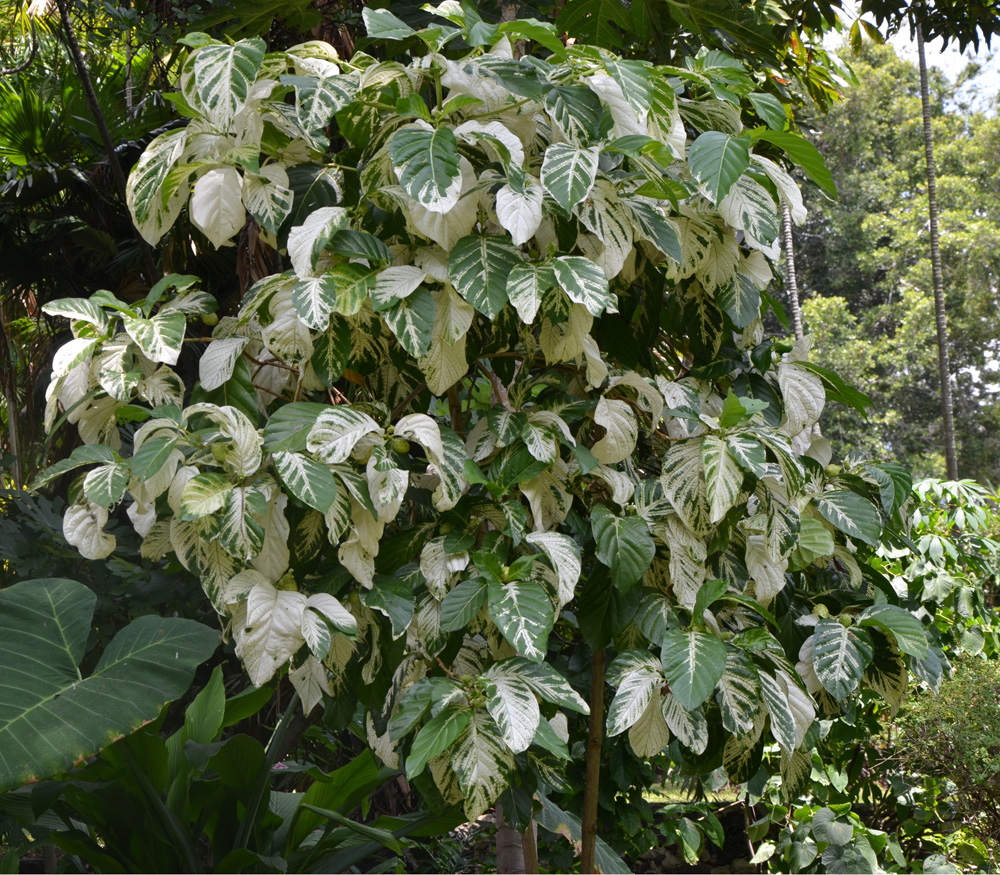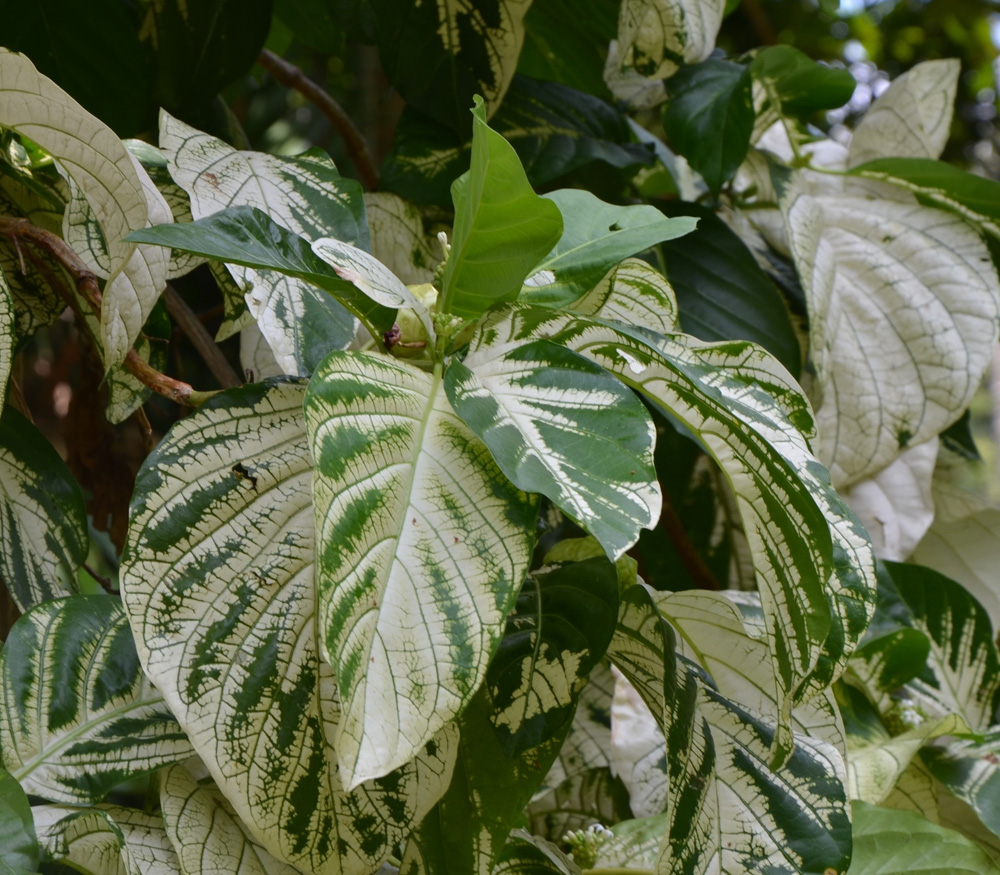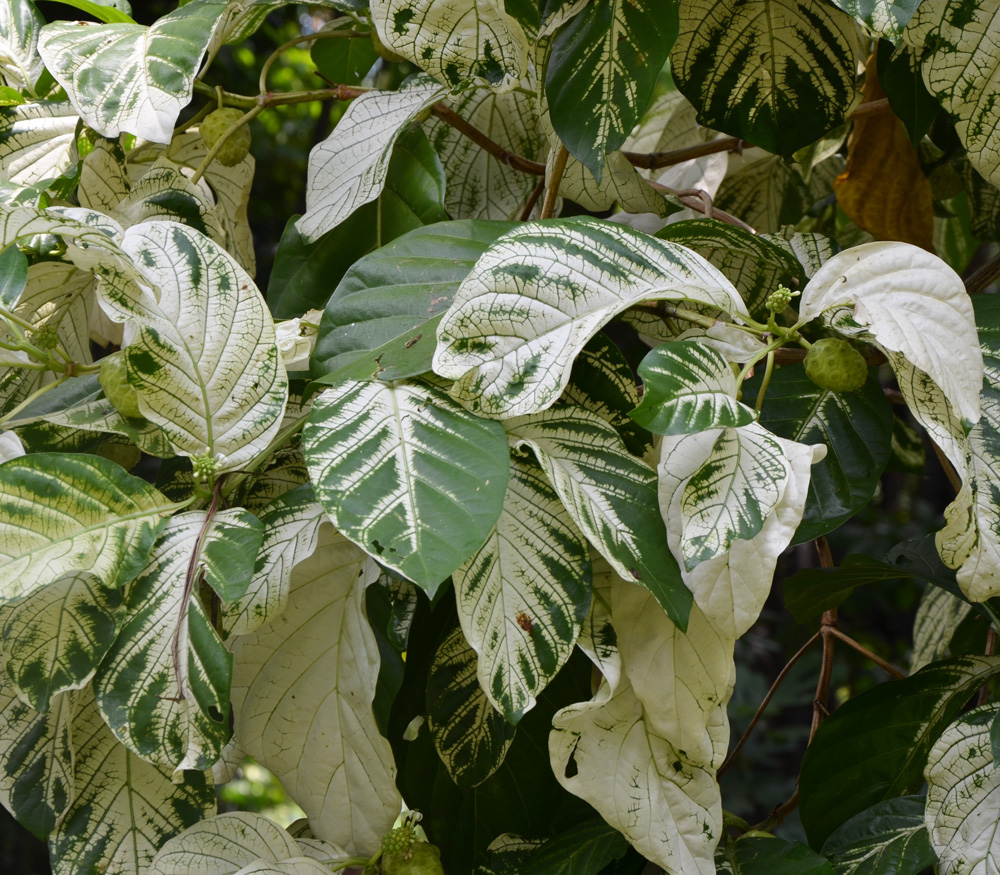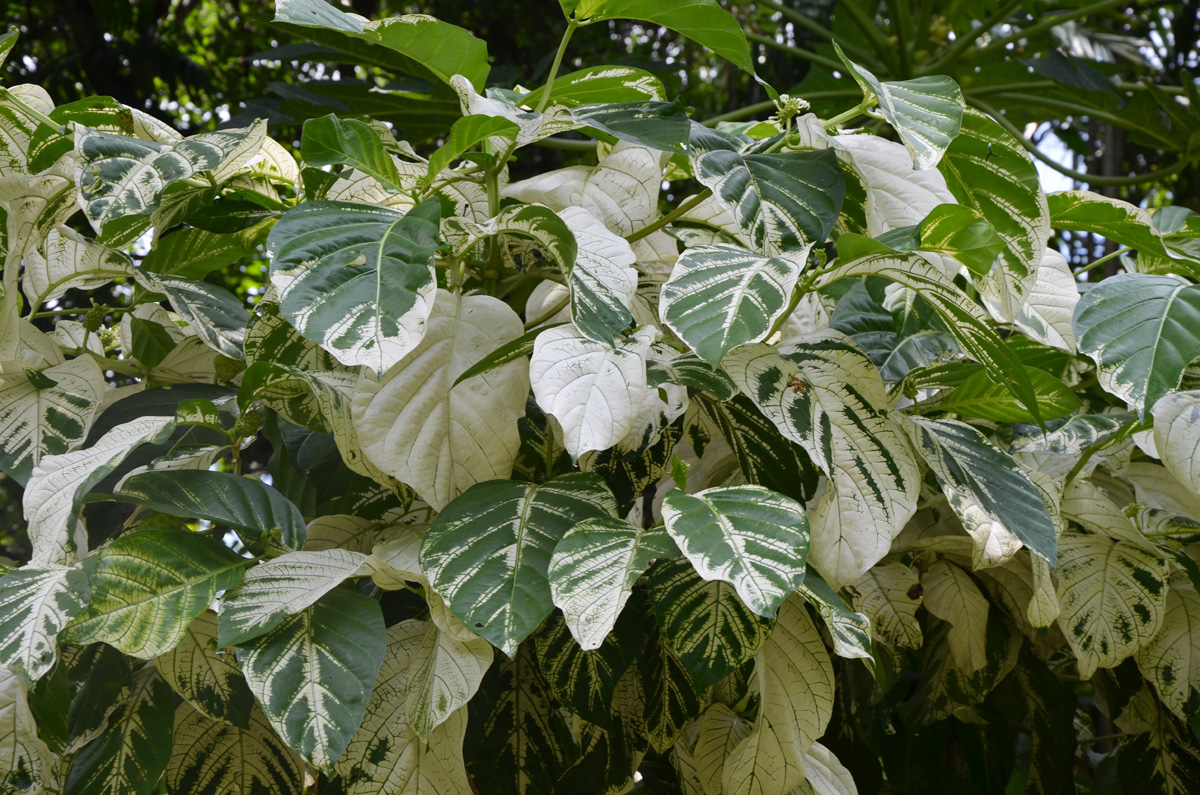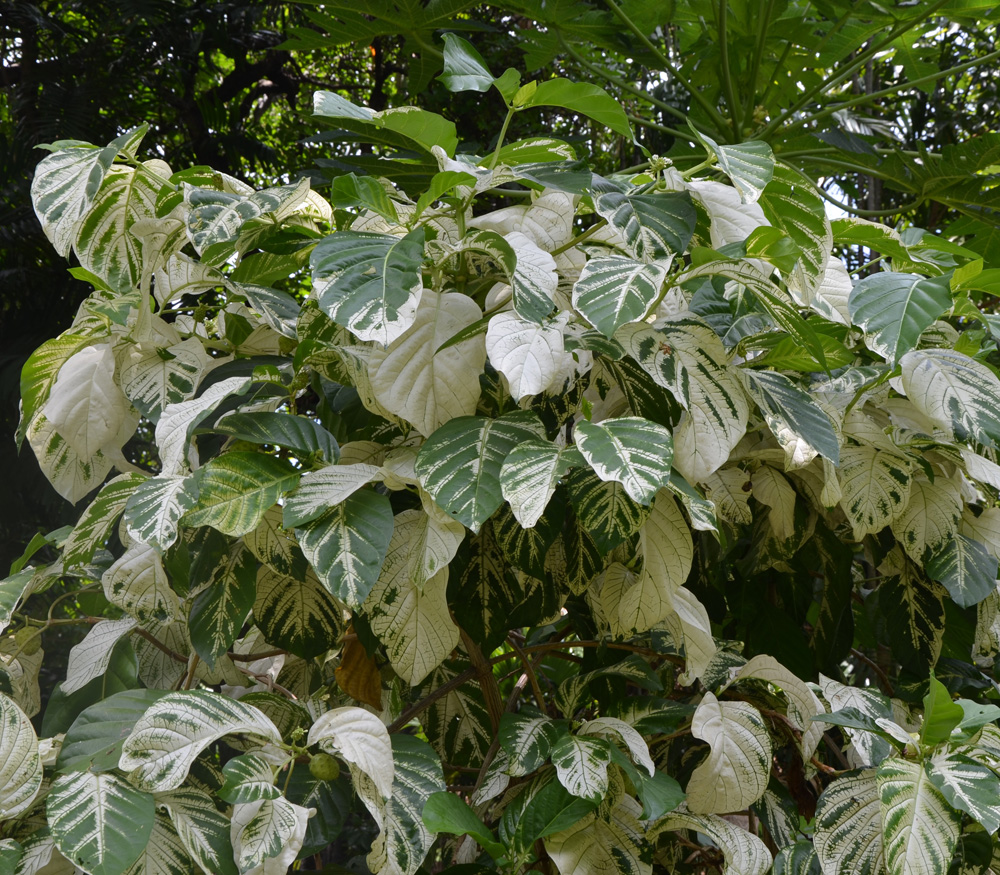- Home »
- Information »
- Noni
Noni
Morinda citrifolia
Medium sized fruit with knobby yellow-green segments up to 4-5" around. Flesh is usually milky white, juicy, with a fetid odor. The noni has a long list of scientifically documented and undocumented medicinal benefits.
Seed Availability
Seeds are now available at our seed store.
Description
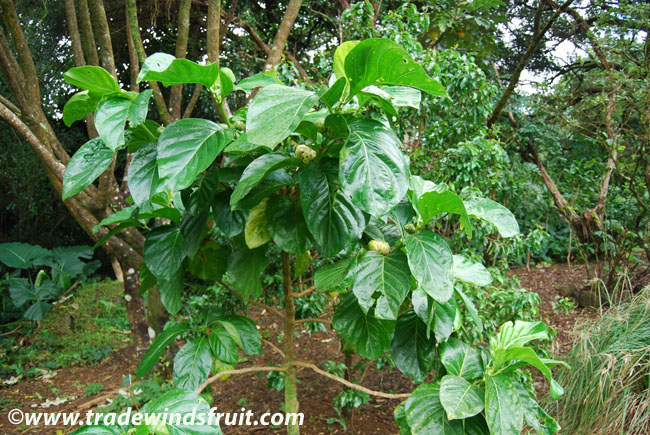 A small shrub or tree, usually only to 10-20ft high. The trees are quite attractive, having large, glossy green leaves. Fruiting may occur at any time of the year and it is common for single trees to have flowers and fruit at various stages of ripening all at once.
A small shrub or tree, usually only to 10-20ft high. The trees are quite attractive, having large, glossy green leaves. Fruiting may occur at any time of the year and it is common for single trees to have flowers and fruit at various stages of ripening all at once.
Hardiness
The noni is strictly tropical and any long-term frost will kill the tree. Generally considered hardy to about 35-40F, but only for brief periods of time.
Growing Environment
It is an excellent plant for seaside areas as it will stand sandy soil and salt spray.
Propagation
By seed.
Germination Info
Noni seeds can be some of the slowest and most difficult tropical fruit seeds to germinate. Noni seeds naturally have a semi-hollow seed cavity along with the embryo. Because the cavity is hollow, the seeds float in water and in their natural habitat will drift in bodies of water for several weeks. Germination time averages 3-12 months, but some techniques can be used to speed that up.
Optional: Scarification. Very carefully clip the end of the seed (the flat area, opposite from the bulbous embryo cavity) about 1/16". Use a fingernail clipper but take care as cutting into the embryo will kill the seed and it will not germinate. Cutting a small hole in the tip will help water penetrate the hard seed coat and aid in speeding germination.
Preparation for planting: Once clipped (or not clipped), soak seeds in room temperature sterile water for 24-48 hours. The seeds will float, so it can be a challenge to keep them submerged.
Planting: Clean seeds with fresh water and plant up to 1/2" deep in a loose, sterile soil potting mix or Vermiculite. Seeds should be watered so as to not let soil dry out. Keep the soil temperature above 75F, but preferably 85-95F. Soil should not be allowed to cool more than 10 degrees at night as warm soil temperatures are essential for germination. Scarified seeds need from 6-12 weeks for germination. Non-treated seeds will need up to 12 months for germination.
Uses
Almost exclusively used for its medicinal properties. Both unripe and ripe fruits are used. Juice and pulp from the noni is said to be beneficial in treating intestinal disorders, worms, respiratory disorders, rheumatism, certain cancers, TB, menstrual problems, and more.
Native Range
Native to Southeast Asia and islands of the South Pacific.
Additional Pictures
Related Species
| Rubiaceae | |||
 |
Alibertia edulis Marmelada |
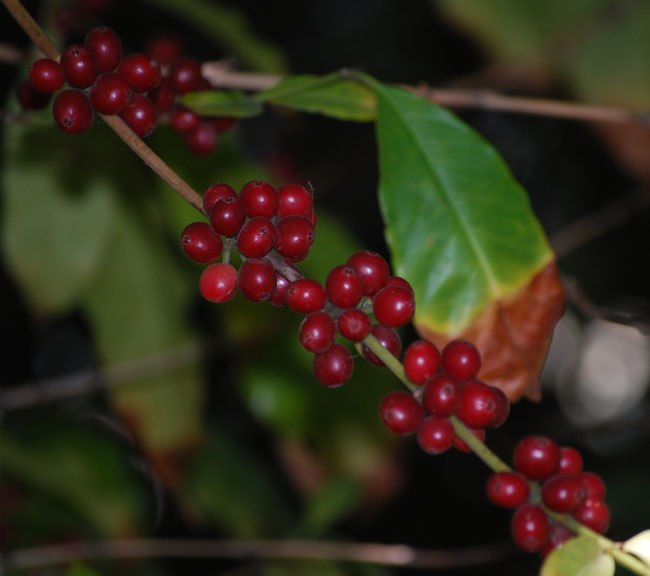 |
Coffea arabica Coffee |
 |
Coffea canephora Robusta Coffee |
 |
Coffea fadenii Coffea fadenii |
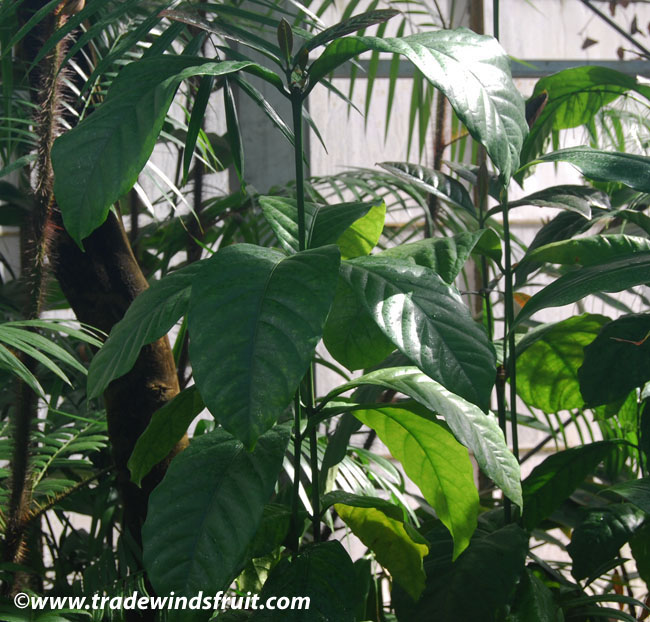 |
Coffea liberica Liberian Coffee |
 |
Coffea mongensis Coffea mongensis |
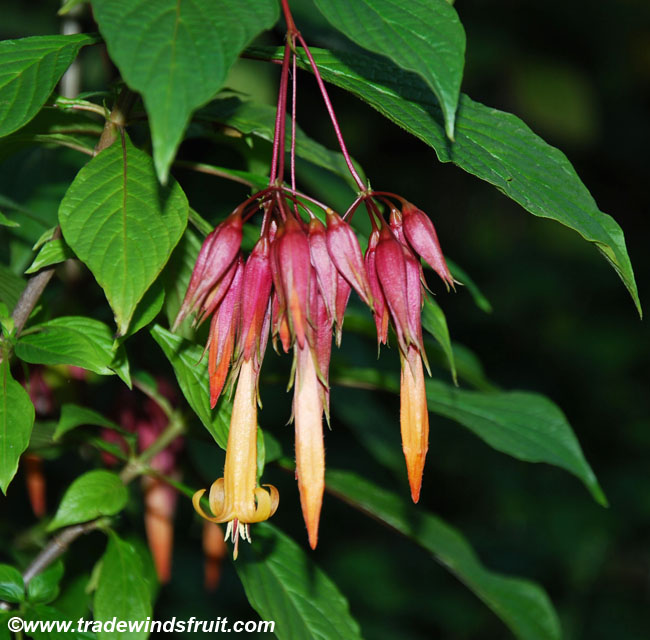 |
Deppea splendens Golden Fuchsia |
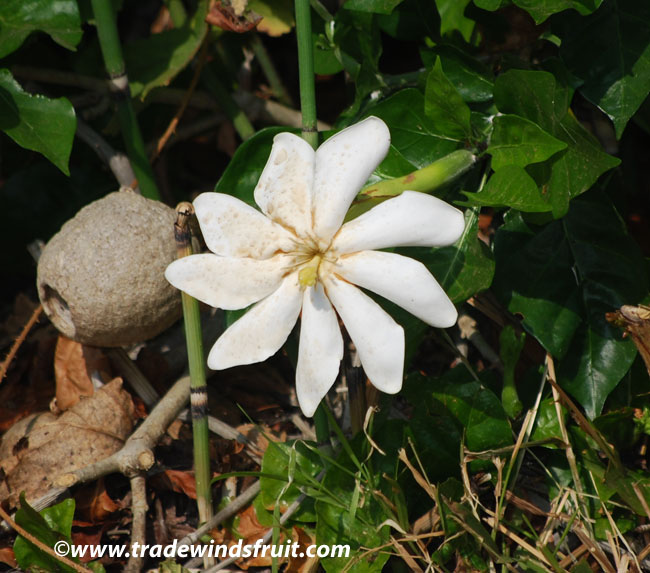 |
Gardenia thunbergia White Gardenia |
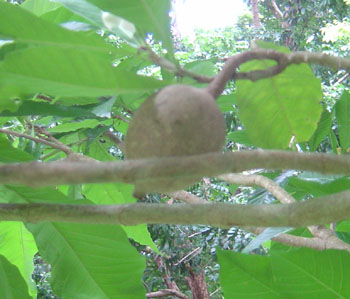 |
Genipa americana Genip |
 |
Genipa infudibuliformes Smooth Genip |
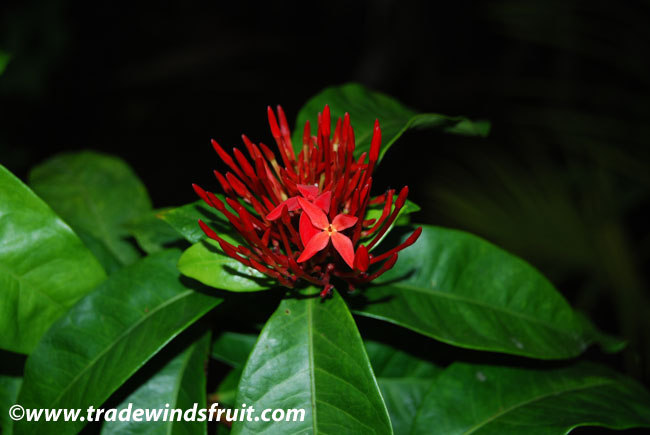 |
Ixora coccinea Ixora |
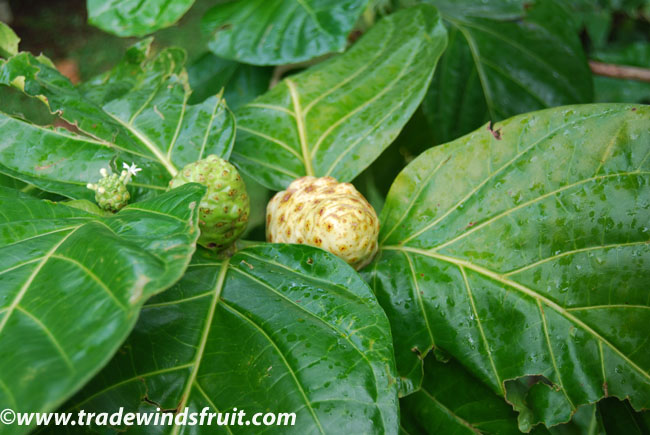 |
Morinda citrifolia Noni |
 |
Posoqueria latifolia Needle Flower Tree |
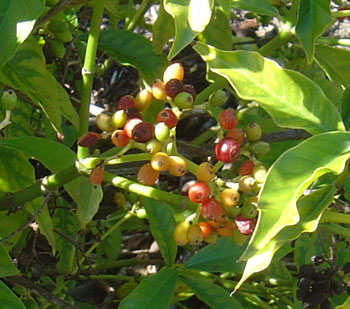 |
Psychotria carthaginensis Sameruca |
 |
Randia aculeata White Indigoberry |
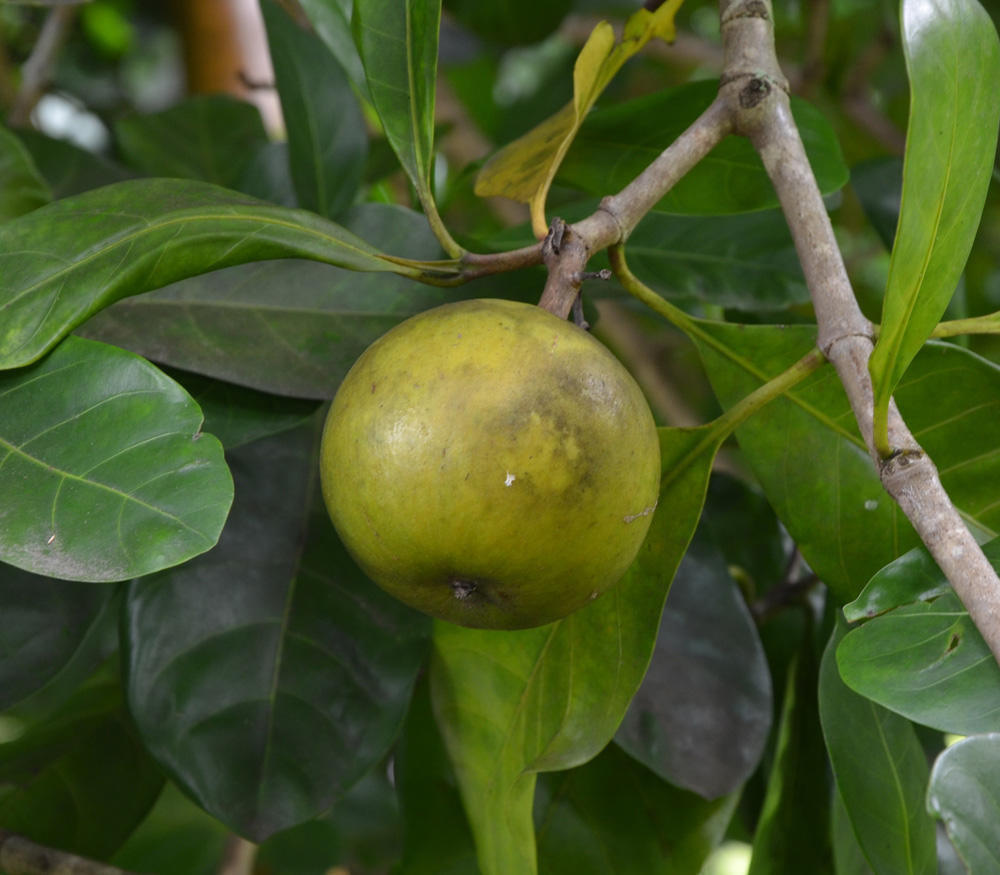 |
Randia fitzalanii Yellow Mangosteen |
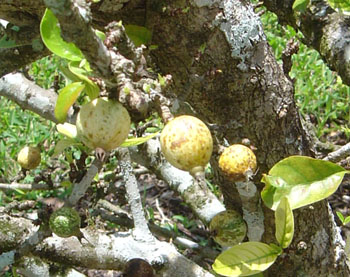 |
Randia formosa Blackberry Jam Fruit |
 |
Sarcocephalus xanthoxylon Ndea |


